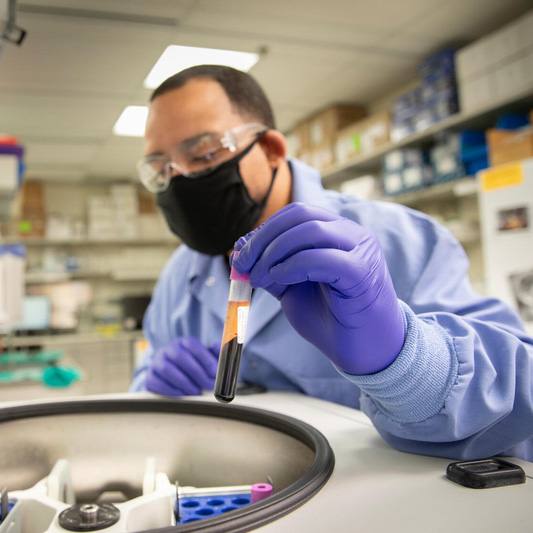-
Discovery Science
Mayo Researcher Contributes to Immune System Collaboration
Mayo Clinic, along with researchers at Harvard University, Temple University, Tufts University, and Boston Children’s Hospital are collaborating on a project to discover new therapeutic responses to infection.
The approach is to determine what genes or regulatory networks affect immune responses to threats such as Ebola and influenza, or antibiotic resistant bacteria. The project will test hundreds of diseases in different host species using a range of technologies and analysis to compare characteristics of tolerance between the hosts.
The project is called Technologies for Host Resilience (THoR). The Defense Advanced Research Projects Agency or DARPA is funding THoR in response to biological threats, especially drug resistant pathogens.
In a press release, Dr. Donald Ingber, Director of Harvard’s Wyss Institute who is spearheading THoR says, “There’s been recent recognition of the desperate problem of emerging infections and the rise of antibiotic resistance.” THoR has the potential to discover interventions to counter both issues.

Mayo Clinic pharmacologist Hu Li, Ph.D., leads the team analyzing genomic information collected by the project. His group is at the forefront of the growing field of precision medicine – using an individual patient’s genome to deliver better, safer and tailored health care.
“We are very excited for this research to help future patients,” says Dr. Li. He defines tolerance as an immune response that helps patients cope with the damage caused by pathogens or by a patient’s immune response. “However, our understanding in host tolerance is very limited,” Dr. Li acknowledges.
He explains that the team will incorporate systems biology approaches and advanced network tools to identify driver genes important for tolerance. The group will attempt to understand the interactions between driver genes and regulatory networks by integrating the data collected by THoR. “Our long term goal is to develop therapeutics to boost and manipulate the activities of these drivers,” explains Dr. Li, “to help patients to mitigate harmful or even fatal consequences from pathogen infections.
- Alex Generous, July 1, 2016







